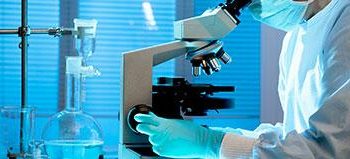Human Microbiome Market Dynamics
Driver: Increasing focus on human microbiome therapeutics development
Human gut microbiomes play a major role in improving the efficacy of therapeutic compounds. Over the years, studies have shown that the right combination of microbes in the human body is beneficial for treating different conditions. This association between microbes and specific disease states could generate new opportunities for drug developers (or vaccine manufacturers). Microbes are rich sources of enzymes, owing to which they can be used in various therapeutic applications, such as the search for novel therapies.
In the last decade, microbiome therapy has gained widespread importance. During a 10-year timespan (fiscal years 2007–2016), the National Institutes of Health (NIH) invested USD 215 million on the Human Microbiome Project (HMP) and USD 728 million on extramural human microbiome research activities outside of the HMP over fiscal years 2012–2016. Similarly, the European Commission established Metagenomics of the Human Intestinal Tract project (MetaHIT), which is mainly focused on gut bacteria.
Revenue Growth Dynamics:
The human microbiome market is projected to reach USD 1,598 million by 2028 from USD 894 million in 2025, at a CAGR of 21.3% from 2025 to 2028.
Download PDF Brochure@
https://www.marketsandmarkets.com/pdfdownloadNew.asp?id=37621904
Restraints: Barriers in proving the causal link between dysbiosis and diseases
The human body is home to a diverse community of symbiotic, commensal, and pathogenic microorganisms, collectively known as the microbiota. Various studies also suggested that that only 30-40 species as the bulk of microbiota are shared among individuals. Analyzing specific bacteria from among trillions of species can be a highly challenging task. High-throughput omics technologies can identify the exact bacterial species involved and provide an understanding of how homeostasis between humans and microbes is maintained. According to human microbiome research, dysbiosis of microbiomes results in some of the most chronic and lifestyle diseases, such as obesity, diabetes, and various digestive disorders.
The current approaches for identifying microbial markers for diagnostic purposes need to rely on comparisons with parallel control groups of healthy individuals. Selecting the correct microbial chassis for a microbiota-based therapeutic is challenging, as it is difficult to predict which microbe is best suited for any given application.
Recent Developments:
# In 2020, 4D pharma merged with Longevity Acquisition Corporation to gain a NASDAQ listing. In turn, Longevity will support and accelerate the ongoing development of 4D pharma’s Live Biotherapeutic. Live Biotherapeutics is a novel and emerging class of drugs, defined by the FDA as biological products that contain a live organism, such as a bacterium, that is applicable to the prevention, treatment, or cure of a disease.
# In 2020, BiomX collaborated with Boehringer Ingelheim to utilize the microbiome-based biomarker discovery platform to potentially identify biomarkers associated with patient phenotypes in Inflammatory Bowel Disease (IBD).
# In 2019, Seres collaborated with AstraZeneca to get a better understanding of the microbiome in augmenting the efficacy of cancer immunotherapy, including potential synergy with AstraZeneca compounds
By technology, the genomics segment is expected to grow at the highest CAGR during the forecast period.
On the basis of technology, the human microbiome research spending market is segmented into genomics, proteomics, and metabolomics. The genomics segment is expected to register the highest CAGR during the forecast period. The increasing number of projects funded by private and government bodies is a key driver for the genomics market.
North America accounted for the largest share of the human microbiome market.
In 2019, North America accounted for the largest share of the overall market, followed by Europe. Factors such as the increasing incidences of lifestyle diseases, rising awareness on preventive healthcare, availability of funding for microbiome research, and the increasing number of microbiome research & clinical activities are responsible for driving the growth of the market in North America
Request Sample Pages@
https://www.marketsandmarkets.com/requestsampleNew.asp?id=37621904
Key Players:
The major players in the human microbiome market include Enterome Bioscience (France), Seres Therapeutics (US) 4D Pharma (UK), and Ferring Pharmaceuticals (Switzerland).


